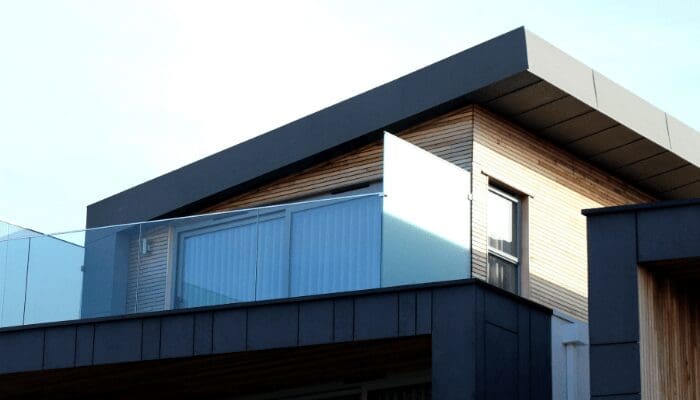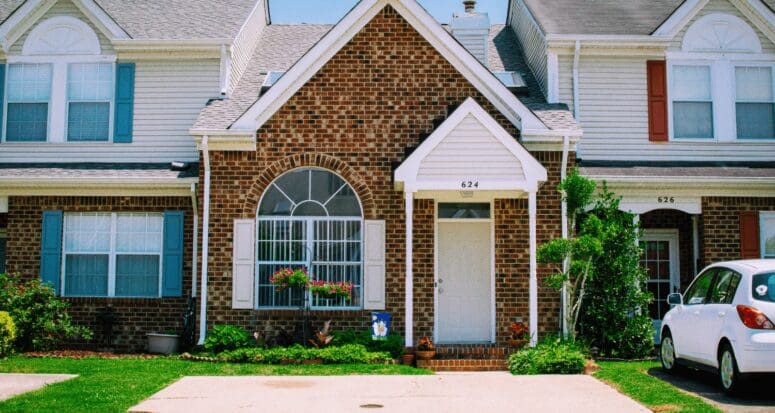Turnkey Homes Aren’t for Every Buyer: Here Are 5 Realistic Alternatives to Buying Turnkey Home
- Published on
- 2-3 min read
-
 Hana LaRock Contributing AuthorClose
Hana LaRock Contributing AuthorClose Hana LaRock Contributing Author
Hana LaRock Contributing AuthorHana LaRock is a writer and content strategist who has written for Lab Coat Agents and Apartment Therapy. She specializes in breaking news on the housing market, content strategy for real estate companies, and evergreen tips and how-tos for agents, buyers, and sellers.
Most of us have an idea of what our dream home looks like. And when we imagine going out and buying that home, we rarely consider the fact that our perfect dwelling may not be available, or that the house may be out of our budget.
But, what if there was another way to buy a home—one that’s not necessarily turnkey ready, but could actually end up saving you a lot of time and money in the long run? It may sound overwhelming, scary even, but it’s simply another path to the same destination.
The downsides of buying a traditional turnkey home
Perhaps buying a turnkey home (AKA a home that’s ready to move into) is the only method you know about or feel comfortable with. It’s how your parents bought their home and how your friends are buying theirs.
But, before assuming that a turnkey home is the “easiest” way to go about buying a house, there are actually a number of downsides to this path:
- Going through an agent to buy a turnkey home is often much more expensive, and you’ll have to pay a commission to the agent
- You may be in competition with other buyers, meaning you’ll have to put in a higher offer
- The paperwork is often a long and grueling process, and it can take months before you’re in your new home
- Turnkey homes often lack character, and it can end up being more expensive to put in your own touches
These are just a few reasons why buying a turnkey home may not be right for you. Now, let’s get into the available alternatives:

Turnkey alternative #1: attend an auction online or in-person
Auction.com is a great place to go to find very inexpensive homes. Many of these homes are bank-owned or foreclosed.
Of course, a lot of these options tend to be fixer-uppers. If buying a fixer-upper isn’t what you had in mind, just take a look at the website and see what’s available. You may be surprised at what you see!
Many of the homes at auction are cash-only, but some allow you to use a mortgage. A majority of the auctions are held in-person, but there are online auctions available as well. Some of these auctions have bids starting at well under $10,000.
While that may seem like a lot of money to put down in cash, you can end up getting your dream home for the same price as you would’ve paid for a downpayment on a turnkey home.
Turnkey alternative #2: check out the HUD website
In addition to buying at auction, you can take a look at homes owned by the Department of Housing and Urban Development, or HUD homes.
These homes are “1-4 unit residential properties acquired by HUD as a result of a foreclosure action on an FHA-insured mortgage” which are being sold to recover the loss on a foreclosure claim. You can find HUD homes by visiting the HUD website.
In order to buy one of these homes, you usually have to pay in cash. But some homes do qualify for financing through a mortgage lender. Again, these homes tend to be much cheaper than turnkey homes.
And it’s important to remember that just because it’s foreclosed, does not necessarily mean the home is in terrible shape. Some require a little TLC and nothing more.

Turnkey alternative #3: community development programs
There are several cities in the United States that offer homebuyer incentives to help build the community. Essentially, this means that (believe it or not!) you’ll get paid to live there, as long as you’re willing to follow the requirements.
The requirements differ from one program to the next, but they can involve a commitment to living in the home for a certain number of years, or using “sweat equity” to pay for it.
Some other incentives of these programs may involve assisting you with a down payment, offering forgivable loans, or offering free land in exchange for you maintaining it or building a business on it.
According to Cheatsheet.com, some cities and states that offer these programs are Buffalo, Baltimore, New Haven, Wyoming, and Alaska. If you’re flexible in terms of where you live, this can be a great, affordable alternative to a turnkey home!
Turnkey alternative #4: consider rent-to-buy
Many homeowners offer a rent-to-buy option to tenants as a way to sell their home. Perhaps the seller does not want to go through a real estate agent, or they’re just flexible on how they want to get rid of the home.
In a rent-to-buy situation, instead of making “mortgage” payments to a bank, you’re paying “rent” to the homeowner. That rent payment includes a chunk of money which goes towards a down payment for the home.
Typically, you have anywhere from one to three years to purchase the home, at which point you’ll likely need to work with a lender to take out a mortgage for the property.

Turnkey alternative #5: shop for a prefab home
Last but not least, a great alternative to buying a turnkey home is to buy a home where you put the pieces together “yourself.” Prefab homes are made in parts in a factory, then shipped to you and put together on site.
This option works best when you’ve already purchased a tract of land, and you’ve been given permission to build a home on it.
If that all sounds confusing, the companies that create these homes can help you answer any questions you may have about the process. It can take around 16 weeks to put a prefab home together.
But in reality, that’s often much quicker than the time it takes to buy a turnkey home. So in some cases, this option could save you time, depending on how smoothly the build goes.
Always consult a trusted adviser
Buying a home isn’t one-size-fits-all. There is no One Way that’s best for every homebuyer. That’s why it’s important to explore your options, and do your research.
And no matter which route you take, you should always work with a trusted real estate agent and financial adviser to make sure you’re choosing the best option for you and your individual financial situation.
Header Image Source: (Micah Carlson/ Unsplash)
